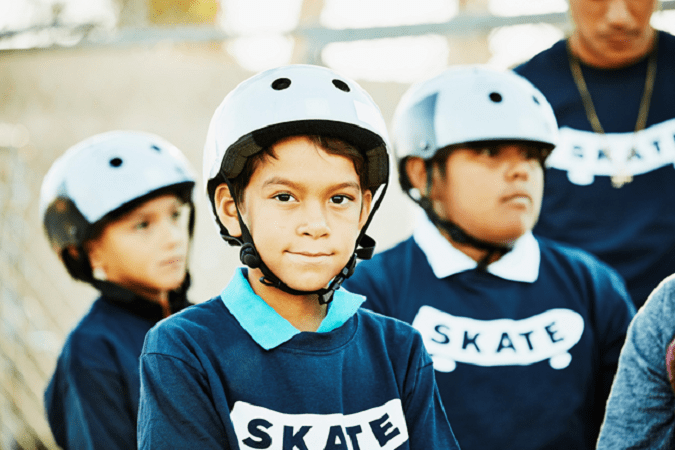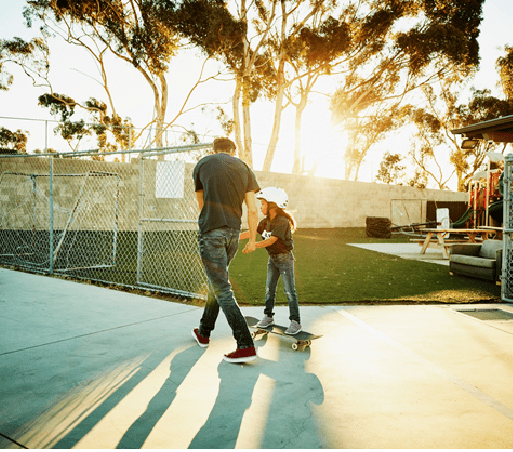Sports provide youth with the opportunity to build empowering relationships with teammates, coaches, staff, mentors, and the parents of other players. It's important to educate ourselves and our children on how to stay protected from potential threats.
Keep Youth Safe
Children who are sexually abused often experience long-lasting effects associated with the trauma, including difficulty in school, challenges with sleep and/or eating, and increased likelihood of substance abuse—all struggles that no child should ever have to endure. Although the reality of risk is difficult to think about, there are preventative measures you can take to safeguard the children you love.


Assess Risky Situations and Practice Navigating Them
Oftentimes your child may be in a risky situation without you even realizing it. There are precautions that you can take as a parent or caregiver to minimize your child’s vulnerability to sexual abuse. You can learn to identify risky situations and address them with family rules, increased communication, or monitoring of online activity to keep your kids healthy, happy, and safe.
Teach How to Set and Respect Healthy Boundaries
It is crucial to teach the children in your life the importance of setting healthy boundaries. These boundaries can include standards on privacy, secrets, or physical touch. Kids feel more empowered when they understand that they have the right to make (or weigh in on) choices about their bodies, their property, what they wear, and anything else that is important to them. The self-trust that they’ll develop as they make choices and define their boundaries is a great way for them to build confidence.


Keep the Lines of Communication Open
When your child feels confident that they can share information with you, they are more likely to feel they can come to you with challenging situations and ask you questions about sex, their bodies, and anything else they want to discuss. To promote open and honest communication with your child, you can ask how they’d like to communicate with you, practice being a better listener, and respond without reacting to the information they choose to share with you.
Managing Emotions
As a parent or caregiver, you can set an example for your child by demonstrating how to experience various feelings without letting the emotion control your response. Being able to cope with strong emotions, sometimes referred to as emotional regulation, is an important part of your child establishing and maintaining healthy and helpful relationships.
Children who feel like they can manage their emotions are more likely to feel confident and content. What may be surprising, however, is that emotional regulation may play a role in child sexual abuse. Loneliness, feelings of disconnect, or shame may all contribute to a child being vulnerable to sexual abuse, so helping a child work through those overwhelming feelings is important for their safety and well-being.


Coping with Emotions
Strong emotions can often lead to impulsive behaviors. In other words, a child may behave in a way that is out of character for them when they are overwhelmed by feelings that they can’t manage. Impulsive behavior may be one cause of concerning sexual behaviors from one child to another. This behavior can cause long-term impact and trauma for both the one acting and the one being acted upon.
Coping with emotions requires patience and practice, for you and your child. What empowers your child to cope with an overwhelming emotion is being able to identify it, feel it (not fight it), find a way to manage it healthily, and be reassured that the feeling will eventually pass
When Child Sexual Abuse Has Occurred
Discovering your child has been sexually abused can be painful and heartbreaking. As their caregiver, you might feel despair, rage, numbness, hopelessness, or may even experience symptoms of trauma yourself. As difficult as this time may be, hope and healing are possible.
As you learn more about the sexual abuse, it’s important to remember that your words and actions have a great impact on your child. You can help your child process and heal from the trauma of sexual abuse as well as reduce its long-term impacts. Research suggests that the level of support from the family may be more influential on the survivor’s outcome than the severity of the abuse. In other words, your love for them is one of the most powerful forces available to help them heal from abuse.

